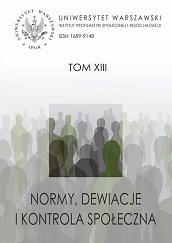Restytucja mienia i pamięć zbiorowa w Polsce i w Czechach po 1989 roku
Property restitution and collective memory in the Czech Republic and Poland after 1989
Author(s): Stanisław TyszkaSubject(s): Social Sciences
Published by: Instytut Profilaktyki Społecznej i Resocjalizacji UW
Keywords: collective memory; Czech Republic; Poland; property restitution
Summary/Abstract: This article discusses the politics of memory in the Czech Republic and in Poland after 1989 in relation to the restitution of nationalized property as a measure of post-communist transitional justice. Public debates in both countries have seen the emergence of various historical narratives of victimhood, constructed around memories of various historical injustices and used to justify or oppose claims for restitution or compensation for lost property. Restitution claims were made by various groups of former owners expropriated during several waves of property revolutions in the twentieth century related to war, genocide, forced population transfers, and radical socio-economic reforms. In the case of both nations, it is possible to identify dominant memory discourses which shaped the dynamics of restitution debates. In the Czech Republic, the condemnation of communist crimes presupposed the principle of compensation for past wrongdoing, while in Poland the idea of property restitution was rejected on the basis of arguments relating to universal victimhood and the impossibility of universal compensation. In both countries, different narratives were legitimized by positive law. In the Czech case this took place through the adoption of restitution laws at the beginning of the 1990s, while in Poland through the silence of the legislator and far-reaching resumption of legal elements of the former communist legal order.
Journal: Normy, Dewiacje i Kontrola Społeczna
- Issue Year: 2012
- Issue No: 13
- Page Range: 217-236
- Page Count: 20
- Language: Polish

